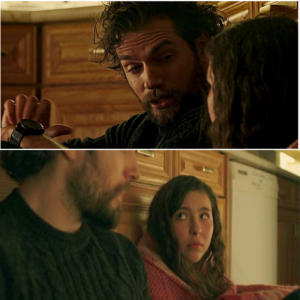In the wake of Disney’s live-action Snow White remake flopping at the box office in March 2025, actress Rachel Zegler has opened up about the severe emotional toll the experience took on her. The 24-year-old star, thrust into the spotlight with her role as the titular princess, faced a barrage of online backlash, professional setbacks, and personal turmoil. In a candid revelation to i-D Magazine, Zegler admitted to reaching a breaking point, reportedly screaming at her psychiatrist, “I need anxiety meds,” as the criticism overwhelmed her. This article delves into the chaos surrounding the film, Zegler’s mental health journey, and the broader implications for young stars navigating fame in the digital age.
The Snow White Backlash: A Perfect Storm
The live-action Snow White, released on March 21, 2025, was intended to be a modern reimagining of Disney’s 1937 classic. With a budget exceeding $270 million, the film starred Zegler as Snow White and Gal Gadot as the Evil Queen, promising a fresh take on the fairy tale. However, the project faced controversies from the outset. Zegler’s casting as a Colombian-Polish actress sparked racist backlash from some fans who felt she didn’t fit the “white as snow” archetype. Her comments during a 2022 Extra TV interview, where she called the original prince a “stalker” and dismissed the love story as “weird,” further fueled outrage among purists. The decision to reimagine the Seven Dwarfs as diverse “magical creatures” also drew ire, with many accusing Disney of pandering to political correctness.
The situation escalated with Zegler’s outspoken political stances. An August 2024 X post pairing the Snow White trailer release with “free Palestine” ignited a firestorm, clashing with co-star Gadot’s Israeli background and her support for hostages taken during the Hamas attack. Post-election remarks in 2024, including a profanity-laced attack on Donald Trump, led to boycott threats and strained her relationship with Disney. Despite her later apology, the damage was done. The film grossed a disappointing $205.6 million worldwide, marking it as Disney’s worst-performing live-action remake in nearly a decade, and leaving Zegler to bear the brunt of the blame.
A Cry for Help: The Psychiatric Breaking Point
The intensity of the backlash pushed Zegler to a mental health crisis. In her i-D Magazine interview, published on June 24, 2025, she revealed the depth of her struggle. “My f—— psychiatrist has seen me through all of it,” she said, recalling a moment of desperation where she demanded anxiety medication. Her psychiatrist’s reassurance that “what you’re going through isn’t normal” became a lifeline, helping her process the abnormal scrutiny. Zegler described being unable to function, a state she attributed to the relentless online hate and professional pressure. Starting anxiety medication, she noted, was “truly a game changer,” allowing her to regain confidence and navigate her world with renewed stability.
Zegler’s retreat to New Jersey to be with family and her dog during the height of the storm underscores the personal toll. The actress, who rose to fame with West Side Story (2021), admitted the Snow White experience left her emotionally paralyzed. Reports suggest she sought psychiatric help as early as 2023, with the situation worsening after the film’s release. Her openness about medication and therapy challenges the stigma around mental health in Hollywood, though it has also sparked debate about whether this vulnerability will redefine her public image.
The Human Cost of Celebrity
Zegler’s story highlights the precarious position of young actors in the social media era. At 24, she has already navigated the highs of a Golden Globe win for West Side Story and the lows of a box office bomb. The Snow White debacle exposed her to racist, sexist, and politically charged attacks, amplified by platforms like X, where users labeled her “toxic” and “unprofessional.” Behind the scenes, tensions with Gadot over the Israel-Palestine conflict reportedly added to her stress, with Disney hiring extra security for Gadot amid death threats.
This isn’t an isolated case. Other young stars, like Zendaya and Timothée Chalamet, have faced scrutiny, but Zegler’s outspokenness and the film’s high stakes made her a lightning rod. Her refusal to adopt a “victim mindset,” as she told i-D, reflects a conscious choice to reclaim agency. Yet, the question remains: how much should a young actor endure before the industry offers better support? Zegler’s psychiatrist became her anchor, but the lack of institutional safeguards for mental health in such high-pressure roles is glaring.
Professional Fallout and a Path Forward
The commercial failure of Snow White has cast a shadow over Zegler’s career. With no upcoming films listed on IMDb as of July 2025, speculation about her “box office poison” status has grown. Critics argue her controversial remarks and perceived lack of humility contributed to the film’s demise, while supporters point to Disney’s mismanagement and the polarized cultural climate. The studio’s decision to let her “control the narrative” after her initial comments, as noted by a top agent, may have backfired, leaving her to face the fallout alone.
Despite this, Zegler is forging ahead. Her current role as Eva Perón in the West End revival of Evita has drawn mixed reactions, with some praising her vocal prowess and others criticizing a balcony performance that left paying fans indoors. Rumors of her being in talks for The Sound of Music at Lincoln Center suggest a potential career pivot, though nothing is confirmed. Her resilience, bolstered by therapy and medication, indicates a determination to move past the Snow White disaster.
Broader Implications: Hollywood’s Reckoning
Zegler’s experience raises critical questions about Hollywood’s treatment of young talent. The Snow White fiasco mirrors other Disney remakes like The Little Mermaid (2023), which faced similar backlash but recovered financially. However, Zegler’s case stands out due to the personal attacks and her unfiltered response. Disney’s silence on the controversy, possibly influenced by lawsuits like Gina Carano’s, left her exposed, highlighting a gap in protecting stars from online vitriol.
The entertainment industry is at a crossroads. As social media amplifies every misstep, the need for mental health resources and PR guidance is urgent. Zegler’s story could push for systemic change, encouraging studios to prioritize actor well-being over profit. Her choice to speak out, despite the risk, aligns with a growing movement among celebrities to address mental health openly, from Brad Pitt’s 12-step admissions to Halsey’s candid hospital updates.
Public Reaction: Sympathy vs. Schadenfreude
Public response to Zegler’s revelations has been divided. Posts on X show a mix of sympathy—“She’s human, not a punching bag”—and schadenfreude—“This is what happens when you trash classics.” Some applaud her bravery in seeking help, while others question the timing, suggesting it’s a PR move to salvage her image. This polarization reflects broader cultural divides, with her political stances fueling the debate. Regardless, her vulnerability has humanized her, shifting some narratives from villain to survivor.
A Lesson in Resilience
Rachel Zegler’s journey after Snow White is a testament to resilience amid adversity. From screaming for help to finding stability through medication and therapy, she has navigated a storm few could withstand. The disaster of the film, while a professional setback, has illuminated the harsh realities of fame and the importance of mental health support. As she steps into new roles, Zegler’s story may inspire others to seek help and challenge the industry to evolve. For now, her cry for anxiety meds marks not an end, but a beginning—a chance to redefine success on her terms.





